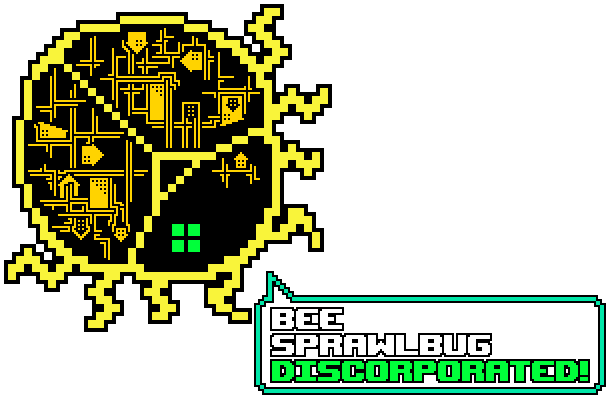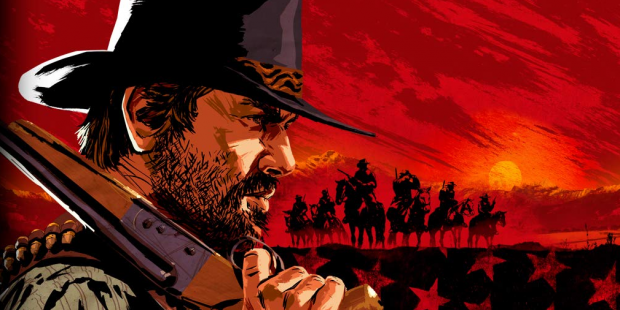
In Red Dead Redemption 2, a horse is essentially a car. I mean that they’re privately-owned, low-occupancy vehicles providing us with the magical ability to speed in relative comfort between any two points on the entire map of the United States of America.
This feat is made possible by excruciating quantities of labour on the part of this game’s developers, who have constructed horse infrastructure across every inch of the land. Of course they built the roads, trails and bridges that serve as rapid transport routes; but they also built the meadows, forests, bluffs and streams such that nearly every surface permits the outlaw Arthur Morgan to cruise around in luxury on his best girl Cloppy.
The duo routinely reaches speeds that can trample nearby pedestrians, yet Arthur himself has little to fear. Sometimes he might trip on a rock, fall down a ravine and die; but he’ll always respawn somewhere close by, so dying in ravines is mostly just an annoyance. Arthur lives in a sort of private transport utopia where the roads are wide, the horses go fast, and the consequences of an accident land exclusively upon others. He is the protagonist of an open world videogame: the player character. And in open world videogames, the player character is god.
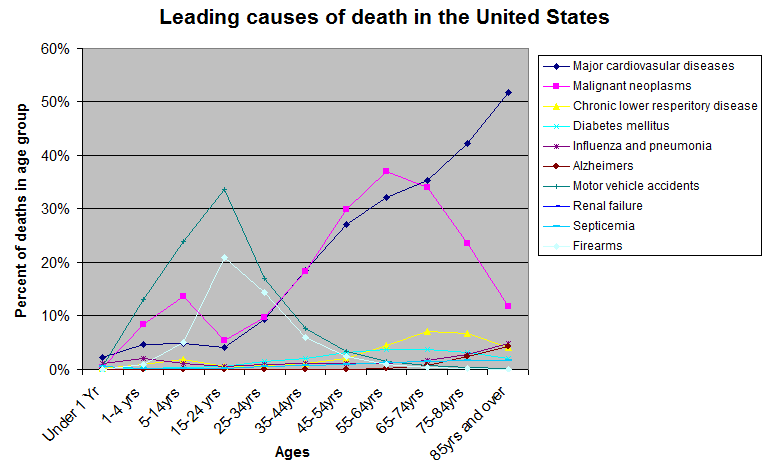
It’s considered fine to drive in present-day America, even though drivers have about a 1/77 chance of their lives ending in a crash. So yes, it’s one of the most dangerous activities Americans do. And sure, it continues to top mortality charts despite decades of safety improvements. But what does any of that matter? Various complicated tragedies have turned America into a country where cars are foundational to life. The systems in place all assume you’re going to drive one. It’s often very difficult not to. And if do you happen to die in an accident, well… the government considers this a life well spent.
Meanwhile Arthur Morgan has a 99.999% chance of smashing his face against a tree at some point over the course of RDR2, and that’s why the designers anointed him with his cosmically-thick skull.
We can reason, given how easy it is to send Arthur headlong into hard objects, that the designers value his pratfalls as a form of comic relief. And I suppose it’s vaguely fun to watch him hurt himself all the time. It’s as if he were a factory for those ‘FAIL’ videos from ten or twenty years ago! However, it is equally important that these pratfalls not disrupt Arthur’s primary mode of transport: Cloppy, the golden-hearted thoroughbred who must bring him anywhere he’d care to go inside of about 10 minutes.
Trains do exist within the world of Arthur Morgan, and appear to travel very great distances: They transition from swamp to prairie, they make choo-choo sounds and so on. But mostly these trains serve as theme park rides, allowing Arthur to play the tourist by gawking at mountains while contemplating his life (or at least taking a selfie in which he looks like he’s doing that). It’s never actually necessary to ride trains for the sake of transportation, because this theme-park-sized America has been compressed and distorted such that our treks across the land feel less like a Western and more like being a well-to-do Angeleno on their way to get hamburgers. The trains, slowed and shortened, are like toy versions of their real world counterparts; meanwhile our 1 horsepower Cloppy matches a 300 horsepower Honda in terms of her capacity to save Arthur from ever having to share a vehicle with the rest of society.
In general it’s more important for trains to splatter hogtied victims upon their cowcatchers (or be robbed by outlaws for the umpteenth time) than it is for them to move actual commuters from one location to another. The people on trains are just NPCs, ripe for robbing and killing; and meanwhile Arthur himself has all he needs in Cloppy.
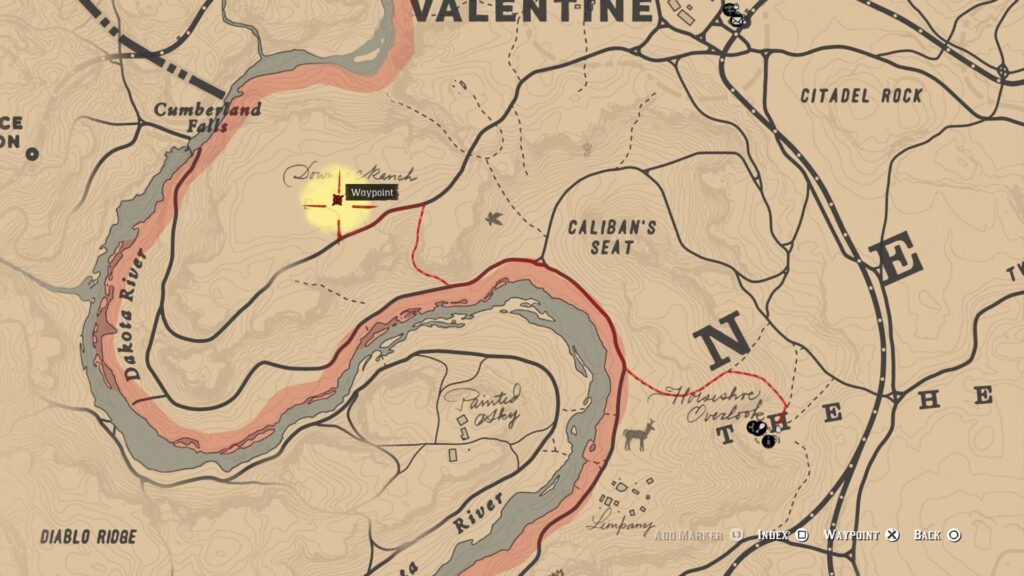
“You’re a good girl,” Arthur says to her, and no one can deny the goodness of this horse. Yet will it be good for cars to disrupt and ultimately dismantle America’s rail and bus travel networks? If Cloppy could speak English she would likely answer that no; in fact, this will be very bad.
“Why bad?” we might ask of Arthur’s girl. And she’d go on to explain to us that cars generate lots of negative side effects, such as deadly accidents and climate change. It’s proving extremely difficult for urban centers to switch their populations towards safer/more sustainable transport modes (even though in many cases they’re just returning to what they used 50 years ago). Meanwhile in the suburbs, millions of people are stuck relying on cars for the foreseeable future. Every day it looks less and less likely that we Holocene lifeforms will ever recover from the automobile. “Suffice to say,” Cloppy finishes, “that luxury private transport for all will in practice be quite a disastrous concept!”
Red Dead Redemption 2 is here to remind us that the concept might not be disastrous, if we sort of just crop out all the negative parts and immerse ourselves wholly in its weird car-horse utopia. But that gets a little annoying, doesn’t it?
It’s annoying that Arthur purports to live outlaw life, free from government interference et cetera, yet he completely takes his transportation options for granted. Hundreds of people had to endure countless labour abuses so these cowboys could ride around all smoothly like this! Every inch of the entire world is like an asphalt viaduct: designed, from top to bottom, to maximize the reach and comfort of Arthur & gang’s vehicles. So how come these guys spend so many cutscenes whining about the hardships imposed by their ‘choice to live free’? All they do is trot across mini-LA, fucking with the locals while flouting the authorities and engaging in heavy substance use (same approximate thing you always do in Grand Theft Auto; same exact thing you’d do with Charles Manson).
What is your complaint, outlaw man? You go anywhere you want; you do whatever you please. Already this world is just a big Robert Moses wet dream where you ride down a pastoral road through a nice park just kinda shooting anybody who annoys you. What more is there? Would you like us to widen the roads so you can have your own private travel lane? And was I really supposed to feel sorry for the gangster princes on their luxury steeds who don’t seem accountable to anyone or anything? I guess it’s intended to read as cool, but mostly I find these characters to be assholes and their company to be tedious.
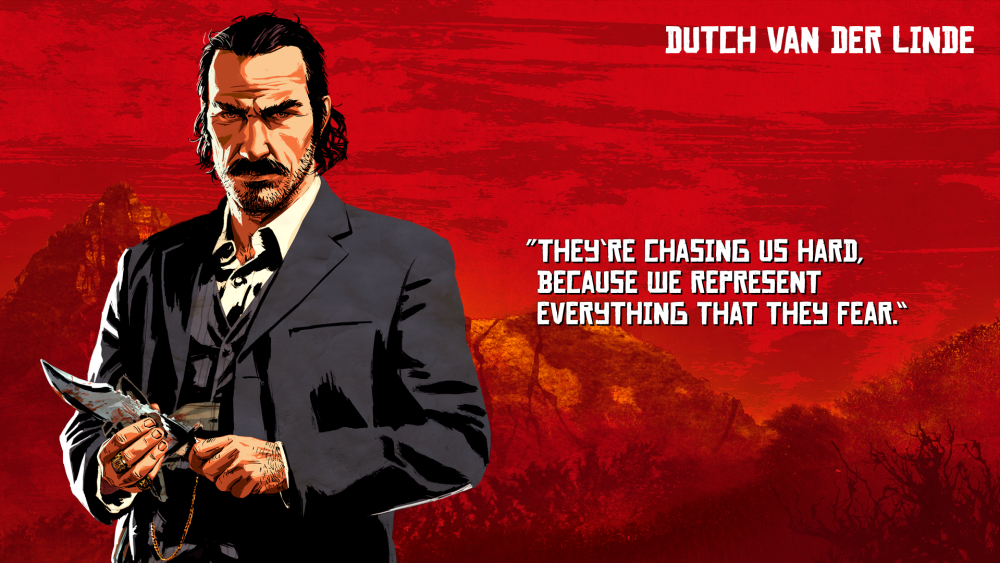
When I think about the making of RDR2, I always remember this one weird anecdote I read concerning those boss guys who founded Rockstar Games.
Apparently if you worked in the same building as them, you were often required to come in on weekends. You may not have had actual work to perform that Saturday; but you had to come sit in your office chair and pretend, on the off-chance boss guy comes over, that you are hard at work on his game.
Maybe in boss guy’s day everybody worked weekends. Maybe in certain ways it was the best period of their lives. Now that time is over, and boss guy is caught within complex webs of social and professional responsibility. Sometimes he still gets that glint in his eye, and comes storming onto the production floor demanding to know where the FUCK Jimmy is this afternoon??
(Perhaps management opted to burn a controllable amount of money keeping butts in seats, rather than blow lots of it sporadically on hiring replacement Jimmies.)
To me this anecdote makes boss guy sound a lot like Dutch Vanderlinde, and that gets me thinking. Here’s a person who rocked ‘n rebelled his way to tremendous monetary importance. These days I wonder whether he cruises round town in a private luxury vehicle, barreling from design to biz to technical meeting in an effort to wage increasingly-abstract rebellions against whatever concepts stand before him. That’s mostly what Dutch gets up to in Red Dead, after all; and playing as Arthur, we’re more like the beleaguered production assistant trying to stop him from blowing Jimmy’s head off.
All these guys did a great deal of ‘changing the world’ back during their golden years, but after a certain point the only change they wanted was just to pause history at the moment of their greatest personal success. But a key point in the story of Read Dead is that the world kept turning despite them, and now it’s all but left the gang behind. Did they learn important lessons along the way, about the nature of youth and power? Not really; seems to me they haven’t changed at all.
The game, for its part, wants to present their stubbornness as its literary theme. But what kind of theme is that, really? It’s like someone already committed the studio to building nothing except outlaw murder games until the end of time, and now the staff grasps at “the cycle of rugged crime man!” as a way to appear duly-cinematic. I’m afraid it’s rather difficult to conceal the publisher’s commercial motives in this fashion; so in the end, I really don’t think we should view these products as artsy.
I suppose I’d rather have played a game about some entomologist, riding round on those commuter trains searching America for cool bugs. That’d be a story of adventure, and curiosity! As it stands, Read Dead is more like a story about bullies who commit to aging gracelessly.
Does the videogame industry really need more of those?
